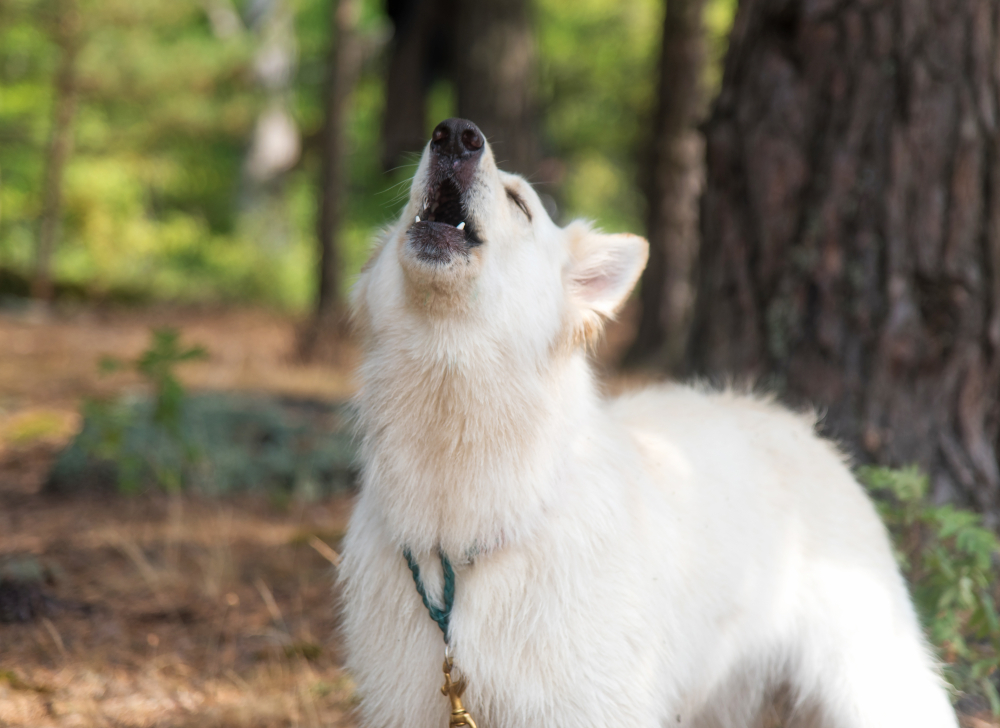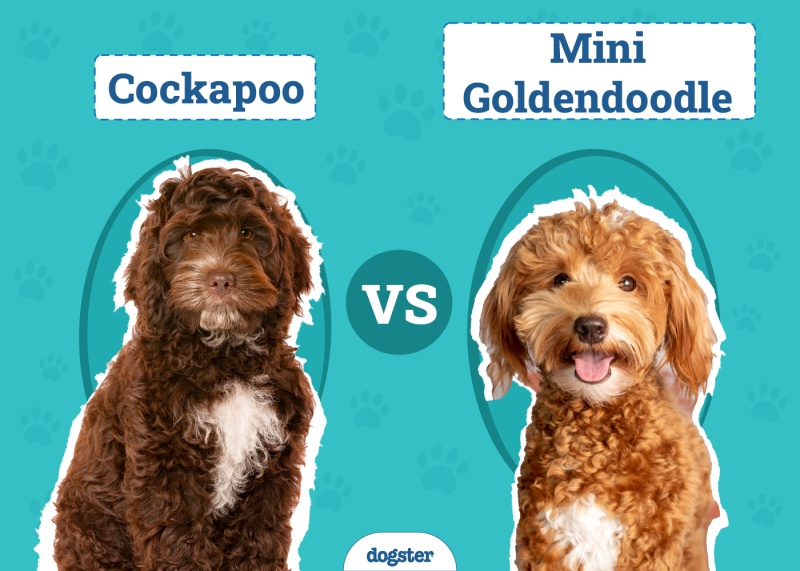Dogs are unique in their ability to communicate with humans, something they and our closest relatives, the wolf and chimpanzee, do not share. Scientists theorize that barking is a by-product of domestication and not significant for intraspecific communication among wild canids. It may also serve different purposes with our pets than their wild counterparts.
For example, wolves howl to define their territories and keep in touch with other pack members. Barking as communication occurs with puppies, and the same is true of meowing with cats. People have also encouraged vocalization among our feline companions. However, to discern why dogs bark at each other, we must view it from a different perspective. So, let’s get into some of the possible reasons that dogs bark at one another.

The 10 Possible Reasons Dogs Bark at Other Dogs
1. Greeting
We have influenced communication between dogs during the 20,000 to 40,000 years we have domesticated them. We’ve also goaded our pets to bark when they greet us at the door or meet up with canine and human friends. Barking has evolved into a greeting, typically incorporating other forms of communication, such as body posture and tail wagging.
Remember that your dog probably encounters other people more often than other canines. Instinctively, they may bark when they see another dog because it’s simply what they know to do.

2. Playfulness
We’ve also encouraged our dogs to play into adulthood, starting with the first puppy playtime sessions. Seeing another dog may spur playfulness in your pet with the prospect of meeting a new friend. Your pooch’s body language may provide further clues about their emotions, but barking can definitely mean that they’re simply being playful.
3. Excitement
Dogs are capable of basic emotions that a 2.5-year-old child would possess, including joy, anger, and excitement. Seeing another dog could elicit these emotions in your pet, especially if it isn’t a frequent occurrence. Again, body language can verify your assessment of what’s going on with your pet. For instance, if they’re wagging their tail or jumping up, they’re probably excited.

4. Territoriality
Our canine companions may have diverged from a common ancestor wolf roughly 27,000 years ago, but they may still have wild instincts like territoriality when seeing another dog. This trait has remained as it is useful to humans, for protection. Their barking may signal to the other animal that this space is occupied. It makes evolutionary sense in this regard because it can help prevent a physical encounter, which could affect both animals’ survival.
Remember that your home is your dog’s core territory where they get food, water, and shelter. It’s worth defending from their perspective. Hence, your pet will bark as a warning if another dog approaches too close.
5. Improper Socialization
Sadly, we’ve probably all met that dog—the one everyone in the neighborhood knows and avoids. The dog that barks fearfully at anything and everyone. These are the signs of a dog that wasn’t properly socialized as a puppy. Between 3 and 14 weeks is a critical period for a pup, as they must get exposed to various things and people at this time to encourage good socialization. This includes meeting other dogs. Otherwise, they will bark and growl when they see another canine out of fear.

6. Attention-Seeking Behavior
This reason also rests with humans. We’ve taught our dogs to bark to get our attention, hence why many people have guard dogs. That means that your dog has learned over time that barking will get your attention. While not always bad, it can be a nuisance sometimes if they bark at every pet in the neighborhood.
7. Fearfulness
Some dogs bark out of fear. That’s especially true with puppies acquired under 8 weeks old and those without an active and social life. The latter reinforces their socialization and canine manners, and these animals are less likely to view another dog as a potential threat. If they haven’t been socialized, the opposite is usually the case. It’s worth noting that fearfulness can morph into aggression, making barking a red flag for trouble.

8. Jealousy
For a long time, scientists dismissed the idea that dogs were capable of higher emotions than the basic ones we’ve discussed. However, research has shown that our pets can show jealous behaviors, especially if their owners lavish attention on another animal. If you pet your neighbor’s new puppy, you can expect your pooch to object to your actions with barking.
9. Guardian/Watchdog Tendencies
Humans have selectively bred our canine companions, including livestock guardians and watchdogs, for various roles. Steadfast loyalty often goes hand in hand with these jobs, and aggression is instinctive behavior. It’s only the context that makes it unacceptable. A pup protecting their home is doing their job—protecting their family and home. So, some breeds are simply more susceptible to barking since they have been used for these purposes for thousands of years.

10. Frustration
Frustration may cause some dogs to bark, especially if restrained and unable to meet another dog they see. This can result in redirected aggression, especially if the other dog is perceived as a threat, where the animal takes out these pent-up emotions on whoever is next to them, whether it’s you or another pet. We recommend paying attention to your dog’s reaction toward barking at another animal, just in case.

Canine Communication
Much is going on under the hood that you may not realize when your dog barks at another canine. Vocalizing only scratches the surface of what’s happening. Dogs communicate in many ways. Their body posture and eye contact provide valuable clues about the animal’s emotions. Remember that they also use olfactory input to assess other dogs and situations.
Canines have over 16 times the olfactory sensory receptors that humans do, making smell a vital sense. Your dog gets a lot of information about another dog by using their nose, including whether the other animal is a friend or foe. They also have another tool in their arsenal, the Jacobsen’s organ. It opens their world to pheromone communication. So, they learn more about another dog than you do.
How the dog barks also says a lot. The context plays a significant role in how your pet responds to seeing another pup. If you listen to the tone of the barking, you might pick up on your pooch’s assessment. One study considered vocalization patterns in hunting dogs. The researchers found that dogs barked differently when encountering a dangerous animal versus a non-dangerous one. Our takeaway is that your pet may see something you don’t when they’re barking at something.
Your pet can also read you and your emotions, responding accordingly. If you are fearful of the other animal, your pet will know. Research has shown that your relationship with your dog isn’t unlike that of a parent and child. Another reason your pet may bark at another dog is because of the bond you share. Perhaps we can forgive some unwanted barking if we keep that thought in mind.


Conclusion
Dogs excel at communication in various forms. Barking is only one way these animals can get much information across with a single vocalization. Interestingly, we nurtured this trait in our pets when we domesticated them. Maybe we wanted to bridge the gap and communicate with our canine companions. However, vocalizing has crossed species lines to convey info and emotions to other pets.
Featured Image Credit: alexei_tm, Shutterstock




















